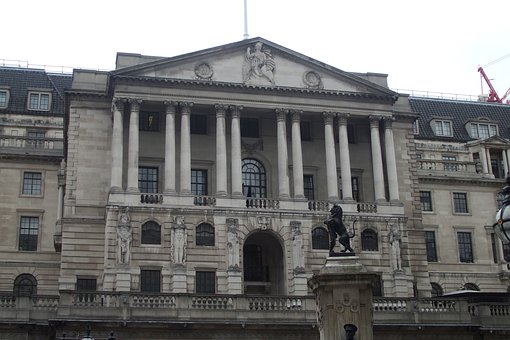The Bank of England has kept interest rates on hold at the record low level of 0.1 per cent but signalled it is prepared to take further action to tackle the effects of coronavirus.
The Bank’s monetary policy committee (MPC) today said it “stands ready to respond further as necessary to guard against an unwarranted tightening in financial conditions, and support the economy”.
Threadneedle Street also gave a gloomy assessment of the economy. The MPC said: “The economic consequences of [coronavirus] are becoming more apparent and a very sharp reduction in activity is likely.”
The Bank slashed interest rates to 0.1 per cent at two emergency meetings over the last two weeks. That is the lowest interest rates have ever been in the Bank’s 325-year history.
The rate cuts were designed to pump liquidity into the economy during the coronavirus outbreak. It is also meant to shore up lending and balance sheets.
The BoE has also ramped up its bond-buying, pledging to purchase £200bn more debt. It said today it will continue with this quantitative easing. The Bank added: “If needed, the MPC can expand asset purchases further.”
On top of this, the Bank has cut so-called capital buffers for banks, giving them more cash to lend. It will also buy companies’ short-term debt.
The Bank of England today decided to maintain current policy for the time being. But it said it is prepared to take further action if needed.
The MPC added that it is looking at “the pass-through to banks and building societies’ lending rates of the recent reductions in bank rate”.
Ensuring the extra liquidity reaches the right firms has been a concern of the Bank. It yesterday sent a letter to banks, along with the government and the City watchdog, telling them to keep lending to businesses to ensure that previously viable companies do not fail due to the crisis.
Risk of ‘longer-term damage to the economy’
The Bank of England today gave a stark assessment of the outlook for the UK economy. However, it warned predictions were currently deeply uncertain.
“There is a risk of longer-term damage to the economy, especially if there are business failures on a large scale or significant increases in unemployment,” the MPC said.
“There is little evidence as yet to assess the precise magnitude of the economic shock from Covid-19. It is probable that global GDP will fall sharply during the first half of this year. Unemployment is likely to rise rapidly across a range of economies, as suggested by early indicators.”
Paul Dales, chief UK economist at consultancy Capital Economics, said: “After unleashing unprecedented support in two emergency meetings over the past two weeks, the Bank of England took a break today.”
However, he said that if stress starts to show in the UK’s bond markets, “expect the Bank to do more by providing more liquidity and/or increasing its asset purchases”.
He suggested the BoE might follow the US Federal Reserve and “announce open-ended asset purchases”.
By Harry Robertson
Source: City AM

